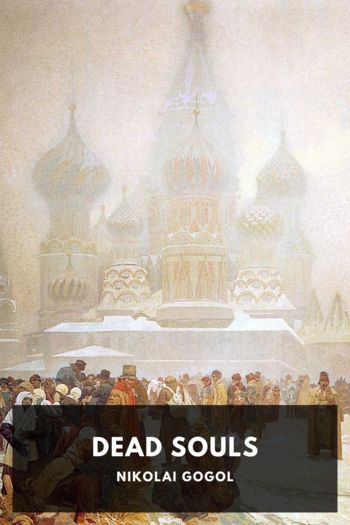Short Fiction - Nikolai Gogol (best selling autobiographies TXT) 📗

- Author: Nikolai Gogol
Book online «Short Fiction - Nikolai Gogol (best selling autobiographies TXT) 📗». Author Nikolai Gogol
Andrii glanced timidly on all sides to see if Ostap’s talking in his sleep had waked any of the Cossacks. Only one long-locked head was raised in the adjoining kurén, and after glancing about, was dropped back on the ground. After waiting a couple of minutes he set out with his load. The Tatar woman was lying where he had left her, scarcely breathing. “Come, rise up. Fear not, all are sleeping. Can you take one of these loaves if I cannot carry all?” So saying, he swung the sack on to his back, pulled out another sack of millet as he passed the wagon, took in his hands the loaves he had wanted to give the Tatar woman to carry, and, bending somewhat under the load, went boldly through the ranks of sleeping Zaporozhtzi.
“Andrii,” said old Bulba, as he passed. His heart died within him. He halted, trembling, and said softly, “What is it?”
“There’s a woman with you. When I get up I’ll give you a sound thrashing. Women will lead you to no good.” So saying, he leaned his hand upon his hand and gazed intently at the muffled form of the Tatar.
Andrii stood there, more dead than alive, not daring to look in his father’s face. When he did raise his eyes and glance at him, old Bulba was asleep, with his head still resting in the palm of his hand.
Andrii crossed himself. Fear fled from his heart even more rapidly than it had assailed it. When he turned to look at the Tatar woman, she stood before him, muffled in her mantle, like a dark granite statue, and the gleam of the distant dawn lighted up only her eyes, dull as those of a corpse. He plucked her by the sleeve, and both went on together, glancing back continually. At length they descended the slope of a small ravine, almost a hole, along the bottom of which a brook flowed lazily, overgrown with sedge, and strewed with mossy boulders. Descending into this ravine, they were completely concealed from the view of all the plain occupied by the Zaporovian camp. At least Andrii, glancing back, saw that the steep slope rose behind him higher than a man. On its summit appeared a few blades of steppe-grass; and behind them, in the sky, hung the moon, like a golden sickle. The breeze rising on the steppe warned them that the dawn was not far off. But nowhere was the crow of the cock heard. Neither in the city nor in the devastated neighbourhood had there been a cock for a long time past. They crossed the brook on a small plank, beyond which rose the opposite bank, which appeared higher than the one behind them and rose steeply. It seemed as though this were the strong point of the citadel upon which the besieged could rely; at all events, the earthen wall was lower there, and no garrison appeared behind it. But farther on rose the thick monastery walls. The steep bank was overgrown with steppe-grass, and in the narrow ravine between it and the brook grew tall reeds almost as high as a man. At the summit of the bank were the remains of a wattled fence, which had formerly surrounded some garden, and in front of it were visible the wide leaves of the burdock, from among which rose blackthorn, and sunflowers lifting their heads high above all the rest. Here the Tatar flung off her slippers and went barefoot, gathering her clothes up carefully, for the spot was marshy and full of water. Forcing their way among the reeds, they stopped





Comments (0)